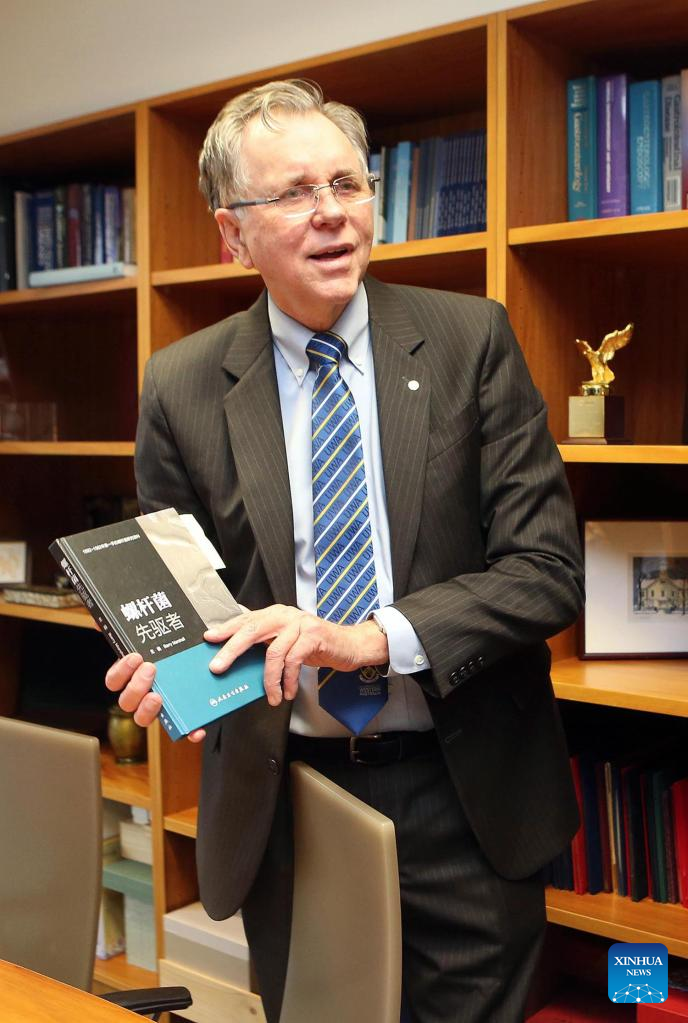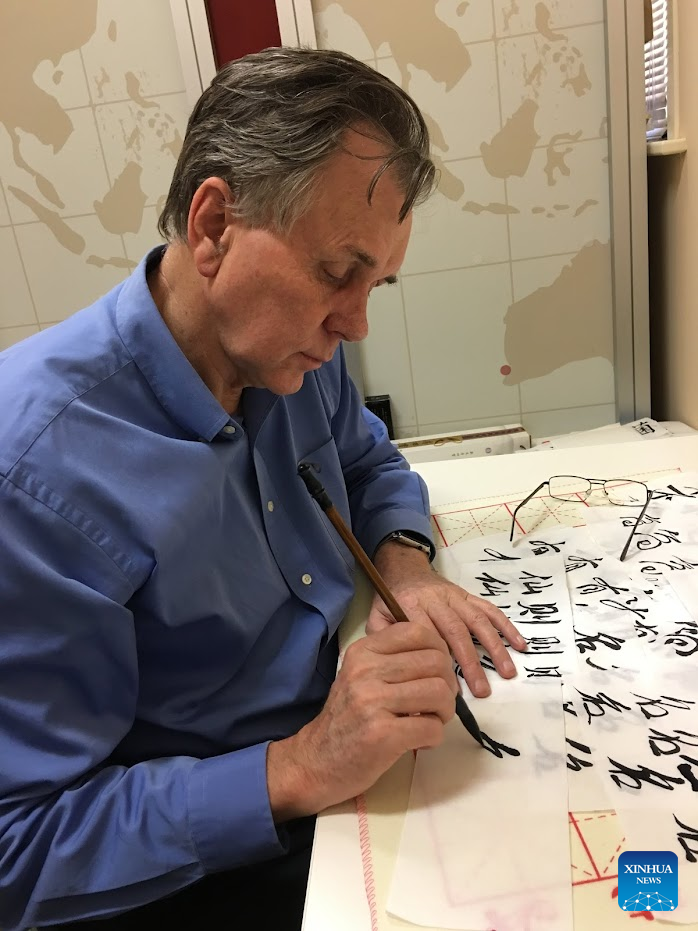
Prof. Barry Marshall is seen during an interview with Xinhua at the University of Western Australia in Perth, Australia, June 8, 2022.
(Photo by Zhou Dan/Xinhua)
PERTH, Australia, June 14 (Xinhua) -- Even after countless trips, for world-renowned physician Prof. Barry Marshall, China is still his top travel destination.
Speaking with Xinhua from his office in the Marshall Center at the University of Western Australia (UWA), the Nobel Prize laureate charted his decades of engagement with China with souvenirs and keepsakes around his office.
Marshall began his connection with China in the early 1990s by travelling to Guilin, a southwestern Chinese city recommended by a Chinese scientist for him as a place to start a medical business. Though the trip didn't last long, the enchanting scenery of the town piqued his deep interest in China.
After Marshall was awarded the Nobel Prize in Physiology or Medicine in 2005 jointly with Dr. Robin Warren for their discovery of the bacterium Helicobacter pylori and its role in gastritis and peptic ulcer disease, he was frequently invited to help raise the awareness of Helicobacter pylori infection.
Marshall was deeply impressed by the pace of China's development, as well as the enthusiasm of Chinese universities and institutions for international scientific research, including research cooperation, which later spurred him on to conduct cooperation with Shenzhen University located in southern China's Guangdong Province.
"After I won the Nobel Prize, I travelled with the Vice Chancellor of the University of Western Australia to Beijing. That was a very interesting trip because that was one year before the Beijing Olympics," he said. "There were lots of new scientific activities and innovations in China at that time."
"I have been to different universities in China. I think the quality of science in the top universities in China is good ... There are probably a lot of good universities in China that are perhaps under-ranked at the moment, but potentially they'll move up."
Marshall started to learn Mandarin as he believed that if he could speak and read the Chinese language, it would facilitate his research work in China. Now, his self-introduction in fluent Mandarin has often impressed those attending his speeches or lectures.
In 2015, Marshall was awarded the Friendship Award of the Chinese government, the highest award to commend foreign experts who have made outstanding contributions to China's modernization drive.
Now Marshall is engaged in a project with Shenzhen University, having established the Marshall Laboratory for Biomedical Engineering, which explores the combination of medicine and engineering.
Besides the ongoing research projects, the two sides also set up a biotech start-up company to help translate the laboratory's inventions to market. High-tech engineering methods of disease diagnosis and treatment are in development. One of the many goals is to develop a more efficient and economical way to detect H. pylori, a major pathogenic factor of stomach cancer.
Before the COVID-19 pandemic, Marshall used to spend several weeks in Shenzhen every year. Despite that the pandemic has made international travel challenging, his communication with Chinese partners has never ceased.
"The beautiful thing is that Perth, Western Australia and UWA are in the same time zone as China, so I can just do WeChat talk or jump into a virtual meeting with somebody straight away at any time, even faster than on the UWA campus," he said.
Marshall plans to continue to make trips to China when international travel becomes more accessible and has planned to develop more exchange programs at the UWA's Marshall Center.
"The science interaction between China and Australia has remained very strong. I think the business linkages, the trade and the scientific exchanges all help the bilateral relations." ■

Prof. Barry Marshall practices Chinese calligraphy at the University of Western Australia in Perth, Australia, Nov. 25, 2016.
(Marshall Center/Handout via Xinhua)
